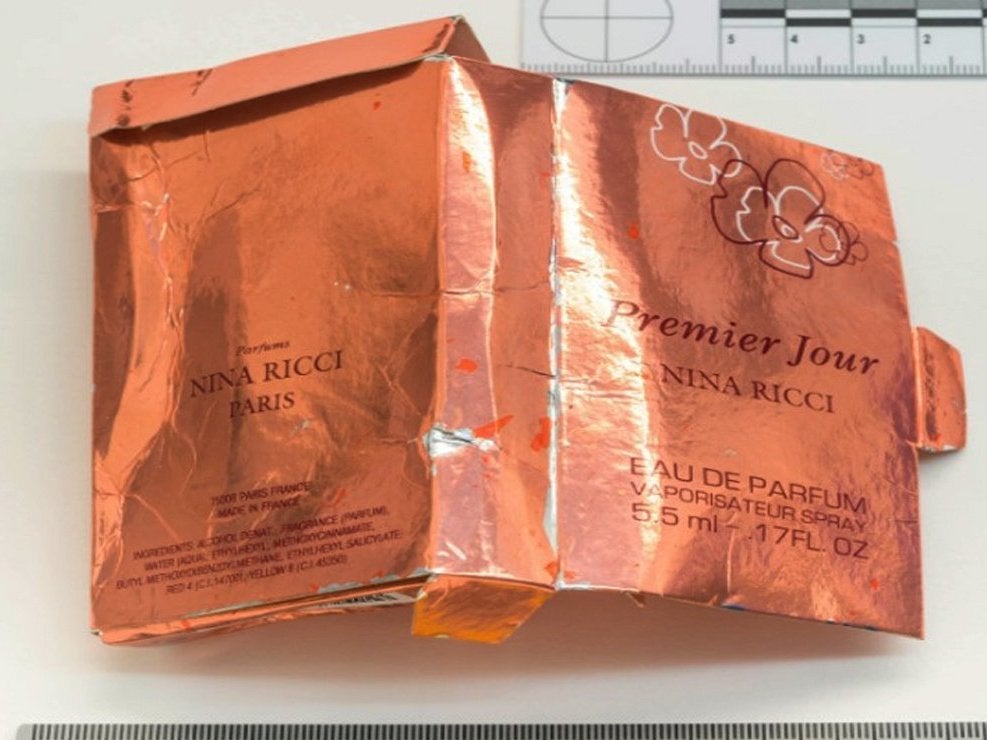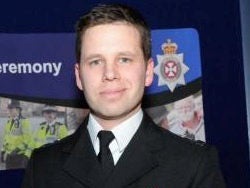Salisbury attack: Second police officer poisoned with novichok after attempted assassination of Sergei Skripal
Police conducting blood tests to identify new potential victims of nerve agent attack
A second police officer was poisoned with novichok in Salisbury, investigators have revealed.
Traces of the nerve agent were found in the officer’s blood after they responded to the attempted assassination of Sergei Skripal in March 2018.
“The officer from Wiltshire Police, who does not wish to be identified, was involved in the response to the poisoning,“ a spokesperson for the Metropolitan Police said.
“The officer displayed signs at the time of the incident that indicated exposure to a very small amount of novichok. The officer received appropriate medical treatment for this at the time and returned to duties shortly afterwards.”
Investigators said a sample of the officer’s blood was taken at the time and analysed by the Defence Science and Technology Laboratory at Porton Down.
“The forensic test – which uses a different method to that used to assess the clinical effects of nerve agent poisoning – has now given detectives confirmation that traces of novichok were in the blood sample,“ a spokesperson added.
Investigators have contacted a “small number“ of other people who may have been exposed to novichok to seek their consent for forensic blood analysis.
“The purpose of any such test is to assist the criminal investigation,” a Metropolitan Police spokesperson said.
“The forensic tests do not have any health implications for either those individuals or the wider public.
“As the Chief Medical Officer has previously stated, anyone who may have been exposed to short-term or one-off contact with low levels of novichok and who has not suffered an obvious illness, is not at risk of any long-term health problems and this remains the same.
“Furthermore, public health experts have confirmed that there is no change to the overall public health risk, which remains low.”
Only one police officer, DS Nick Bailey, was previously known to have been poisoned after being sent to Mr Skripal’s home.
Two Russian suspects identified as GRU agents had applied novichok to the front door of the property, in a quiet cul-de-sac.

Mr Skripal, a former Russian double agent, was left in intensive care with his daughter but they survived after specialist treatment and remain in hiding.
DS Bailey also recovered and recently ran a marathon in support of the hospital unit that cared for him.
Months following the initial attack, a counterfeit perfume bottle containing novichok was unwittingly picked up by a local man, who gave it to his girlfriend as a present.
Dawn Sturgess, a 44-year-old mother, died after applying the nerve agent directly to her wrists in Amesbury.
Police said they still cannot account for the whereabouts of the fake Nina Ricci perfume box or bottle between the attack on the Skripals on 4 March 2018 and when Charlie Rowley said he found it on 27 June.
The suspects for the Skripal poisoning – Anatoliy Chepiga, aka Ruslan Boshirov, and Dr Alexander Mishkin, aka Alexander Petrov – flew to the UK under fake identities and left hours after the attack.
They have been charged over the attempted assassination and are the subject of Interpol red notices and European Arrest Warrants, but police have admitted they will most likely never be captured.

The Russian government has refused to extradite the pair and repeatedly denied any involvement in the attack, while spreading conspiracy theories.
The investigative website Bellingcat recently revealed that a third Russian agent who travelled to London in March 2018 may have commanded the attack.
Appearing on the Russian government-owned RT news network after being named under their cover identities, Chepiga and Mishkin denied involvement and claimed they were nutritional supplement salesmen who were on holiday.
Chepiga, posing as Boshirov, was ridiculed for claiming they visited the “wonderful town” of Salisbury because of its “internationally famous” cathedral, known “for its 123m spire”.
Anyone with information is asked to call police in confidence on 0800 789 321 or email salisbury2018@met.police.uk.

